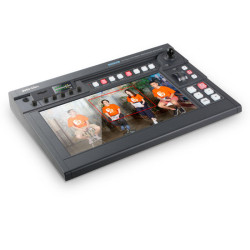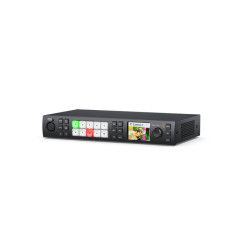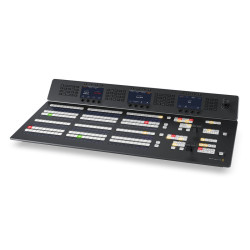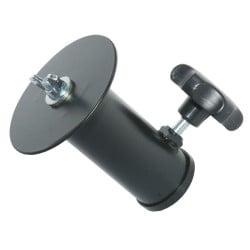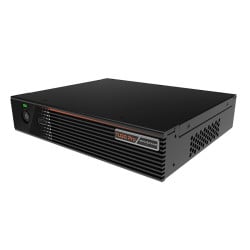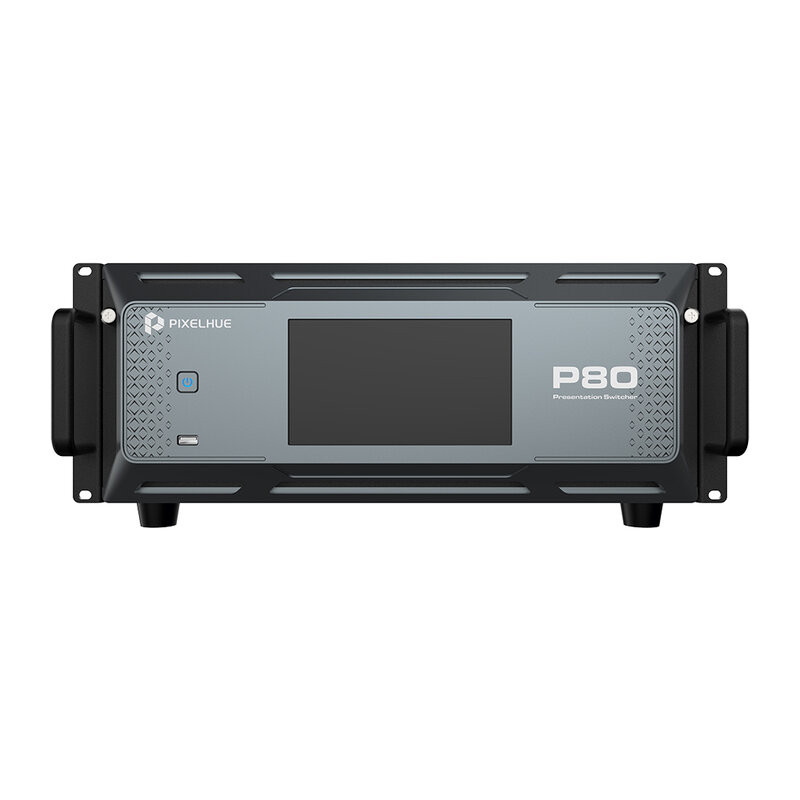PIXELHUE - P80 (with flight case)
Prime
fast delivery is available for this product.
Free Shipping for order equal or above € 199 are limited for delivery within Europe
Variants of this product
9,295.00 €
3,272.50 €
5,254.50 €
Product Details
The P80 is a high-performance modular presentation switcher with enormous potential, based on FPGA architecture, designed to handle complex control rooms in professional environments such as live events, broadcast studios, and multi-screen installations. It sits between the P20 and the Q8 and is designed with an internal 8K architecture. Furthermore, unlike the P20, the P80 allows two machines to be linked.
It supports up to 28 input channels, with the ability to simultaneously use 16 video sources, including HDMI, DisplayPort, and 12G-SDI. There are four main outputs in copy mode, which can be expanded to eight in split mode, plus eight custom aux outputs in the full HD range if SDI is not used, as in this case, the aux outputs are four HDMI and four SDI.
The system allows the use of eight 4K layers across four outputs, each equipped with advanced features such as keying, borders, shadows, cut & fill, and transitions. Each Flex output can handle a dedicated layer, offering great versatility in visual composition. Monitoring is provided by an MVR interface with 4K preview or dual DL, customizable layouts, and simultaneous display of PGM and Flex signals.
Screen management supports up to eight displays, with complete and related presets that can be saved and precisely recalled, up to a maximum of 256 configurations. The front panel integrates an LCD screen for direct control, similar to that of the Q8 model, and supports take and cut functions with time setting.
The P80 includes internal Genlock generation, with synchronization between input signals, outputs, and internal sources, ensuring stability and consistency in video distribution. Finally, the system is designed with complete redundancy logic, covering inputs, outputs, power, control, and the entire device, ensuring operational continuity even in critical situations.
User benefits
- Modularity and Scalability: The internal structure is 8K-ready, with cards ready to accommodate future upgrades
- Up to 16 simultaneous sources
- MVR interface with 4K preview, flexible layouts, and simultaneous PGM and Flex display
- Full Redundancy
- Compatibility with PixelFlow software, U5/U5 Pro controller, third-party Stream Deck control system
- Ability to connect two P80 units to expand operational capabilities
- Keying, shadows, borders, cut & fill, and transitions, with dedicated layers for each Flex output
- Up to 256 recallable configurations
Areas of use
- Broadcast control rooms: ideal for television studios and multi-camera productions requiring advanced layering and synchronization
- Live Events: concerts, conventions, and shows, thanks to multi-screen management and operational redundancy
- Fixed installations in theaters, conference rooms, auditoriums, and convention centers
- Research and simulation centers
Technical characteristics
- Input interfaces: up to 28 input channels; supports HDMI, DP, 12G-SDI. Max. 16 x 4K inputs usable simultaneously. Modular slot for flexible expansion (future plan: 2 x 100G link)
- Output interfaces: supports HDMI / SDI / OPT; up to 4 x 4K main outputs + 4 x 4K Flex outputs. Split mode enables 8 DL outputs using the same canvas. OPT output replicates 1 x 4K signal across 2 ports
- Layer capacity: 8 x 4K mix layers with full advanced functions including keying, borders, shadows, cut & fill, and transitions. 4× 4K mix layers (1 per Flex output port)
- MVR: supports 4K or dual DL preview, dual preview per element, custom layouts. Enables monitoring of Flex output signals
- Screen management: supports up to 8 screens. Flex output mirrors main output capabilities
- Flex output: 4 x 4K HDMI outputs and 4 x 12G-SDI matrix (input source, MVR, and PGM output). Supports fade-in/fade-out transitions and mask effects
- Complete and relative preset: new screen preset interface. Relative presets support saving selected screen, layer count, and take duration. Up to 256 screen presets, loadable to both PGM and PVW
- 7" LCD touch screen on the front panel, similar to Q8 front screen. Supports preset recall, take time setting, and execution of take / cut procedures
- Internal Genlock generation: supports self-generated Genlock and Genlock output. Enables synchronization with Genlock signals, sources, and internally generated inputs
- Full-chain redundancy: covers input, output, power supply, control, and device-level redundancy
- Noise on average: 45 dB
- Max. power consumption: 450 W
- Operating environment:
- Temperature: 0 to 50 °C
- Humidity: 5 to 85% RH, non condensing
- Operating environment:
- Temperature: -20 to 70 °C
- Humidity: 5 to 95% RH, non condensing
- Certifications: FCC, IC, CE, RoHS, KC
- Dimensions: 48.2 x 17.7 x 53.6 cm
- Weight: 23 kg

